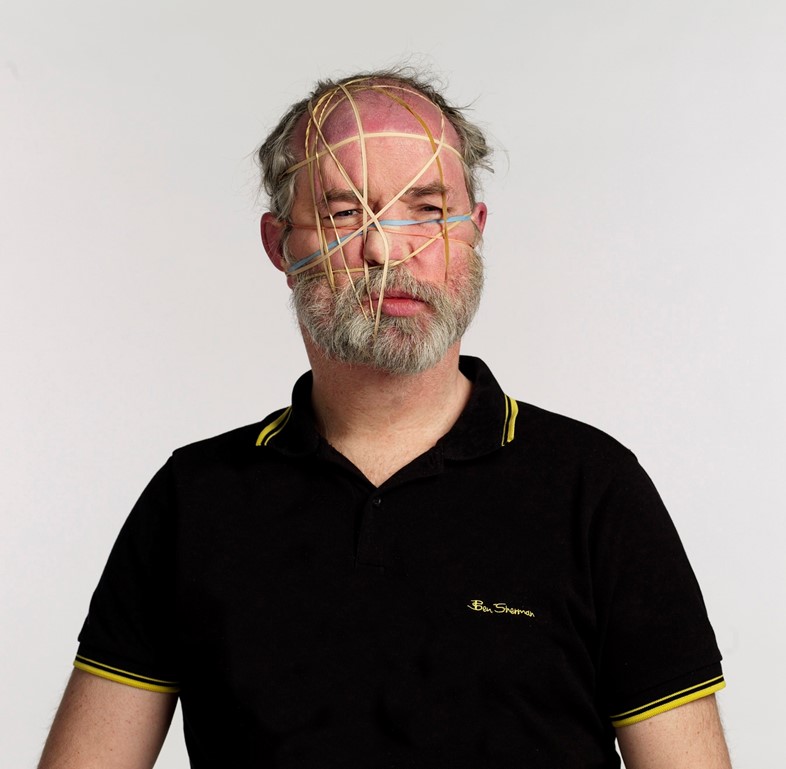Douglas Coupland, born in 1961 in Germany,. He is best known as a writer: his literary works, amongst 14 novels include the iconic Generation X, Tales for an Accelerated Culture (1991), God Hates Japan (2001) and, most recently, Generation A (2009)
Douglas Coupland, born in 1961 in Germany. He is best known as a writer: his literary works, amongst 14 novels include the iconic Generation X, Tales for an Accelerated Culture (1991), God Hates Japan (2001, published in Japanese) and, most recently, Generation A (2009) and Player One (2010). He is also the author of non-fictional books, such as a biography of Marshall McLuhan (2009). He has widely collaborated with artists including Pierre Huyghe, and also works as a visual artist and a fashion designer from his base in Vancouver, Canada.
How would you connect fashion to elegance?
I connect fashion to other peoples’ elegance, but not my own. I don’t think I’ve ever felt elegant. I’ve felt appropriate, but never elegant and I wonder what that must be like. I like it when other people are elegant – I prefer it – but I can’t do it myself. I honestly think it’s some form of autistic disorder.
What is the role of history and art history in your conception of fashion?
Fashion only seems to make sense if it’s rooted in some dimension of history, or if it feels like a continuation of an idea. I look at things like, say, Michael Jackson’s performance outfits and they were completely disconnected from historical reality and it makes them impossible for me to relate to. They’re like Stalinist architecture, designed to seem grand without referencing any specific grand moment. Which is what made them so blank feeling.
Would you describe fashion as a language and a discourse, as Barthes did it?
Absolutely. One that mutates very very quickly. Some people think fashion is frivolous but it’s not …it’s just that some ideas come and go quickly, and that’s the nature of the language of fashion.
The word "intellectual" was coined in a time of great political distress. Does fashion have a political role? And in which way?
I didn’t know that. But yes of course. Start with battle uniforms and pink triangles on concentration camp uniforms. Whether elective or unelective, it speaks about one’s position within a power structure.
How would you relate the concept of 'fashion' to the one of 'style'?
Fashion comes and goes, but style is permanent. Fashionable people can opt out of the fashion stream, but a stylish person never becomes unstylish unless they hit their head on a rock and suffer brain damage.
What does fashion have to do with intellectuality ?
Almost nothing. Politicised fahion is extraordinarily rare – punk, say – but that’s it.
Your are a writer, an artist and a fashion designer as well. What lead you to this threefold creation?
I do other things, too. I decided back in 2000 that I wanted to use all of my brain, not just bits of it. The moment I stopped seing writing as being ghettoised from photography as being separate from script writing as opposed to fashion etcetera, my universe became huge. I could never go back to a segmented mode of creating.
Many people complain about the fact that fashion is getting quicker and quicker. Would you describe its most recent evolutions as the sign of an 'accelerated culture'?
It probably has more to do with the speed of manufacturing and the instantaneous copying of all ideas everywhere at discount prices. It’s why they no longer make movies with budgets between 4 million and 24 million dollars. There’s no longer a consumer ecology that can support them. It’s sad, but something else will emerge. I don’t get sentimental about things like this. Karl Lagerfeld said on Twitter, "The moment you blame the times you live in, it means your time is over". We live in an era of much richness. Find those new nodes. But this acceleration is different from the speed of changing ideas we discussed a few questions back. I don’t think that speed has changed.
In this column each interviewee picks the picture that illustrates their interview, answers six questions that are the same for all contributors and then two more that are designed specifically for them. In two weeks Donatien will be interviewing the fashion designer Hussein Chalayan.
